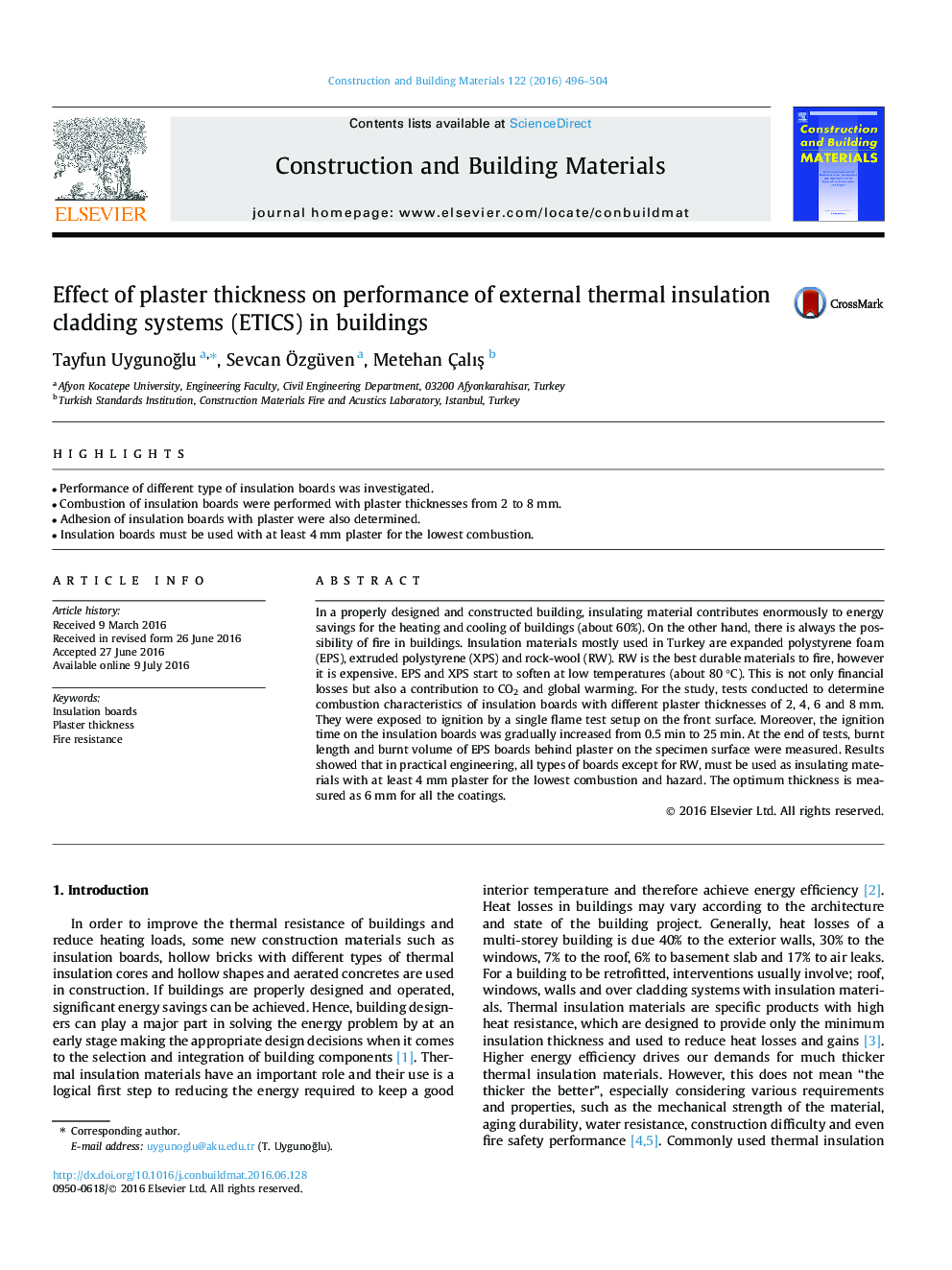| Article ID | Journal | Published Year | Pages | File Type |
|---|---|---|---|---|
| 6718207 | Construction and Building Materials | 2016 | 9 Pages |
Abstract
In a properly designed and constructed building, insulating material contributes enormously to energy savings for the heating and cooling of buildings (about 60%). On the other hand, there is always the possibility of fire in buildings. Insulation materials mostly used in Turkey are expanded polystyrene foam (EPS), extruded polystyrene (XPS) and rock-wool (RW). RW is the best durable materials to fire, however it is expensive. EPS and XPS start to soften at low temperatures (about 80 °C). This is not only financial losses but also a contribution to CO2 and global warming. For the study, tests conducted to determine combustion characteristics of insulation boards with different plaster thicknesses of 2, 4, 6 and 8 mm. They were exposed to ignition by a single flame test setup on the front surface. Moreover, the ignition time on the insulation boards was gradually increased from 0.5 min to 25 min. At the end of tests, burnt length and burnt volume of EPS boards behind plaster on the specimen surface were measured. Results showed that in practical engineering, all types of boards except for RW, must be used as insulating materials with at least 4 mm plaster for the lowest combustion and hazard. The optimum thickness is measured as 6 mm for all the coatings.
Keywords
Related Topics
Physical Sciences and Engineering
Engineering
Civil and Structural Engineering
Authors
Tayfun UygunoÄlu, Sevcan Ãzgüven, Metehan ÃalıÅ,
